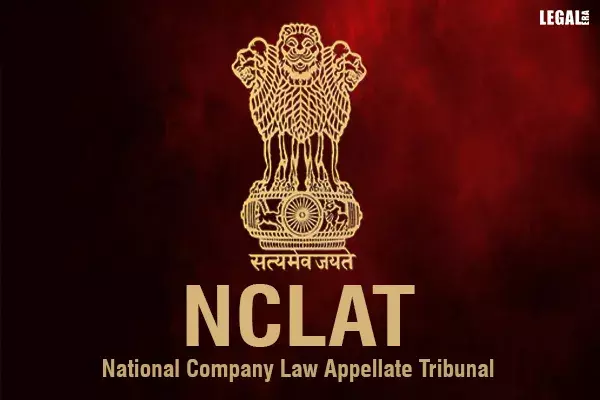NCLAT: Non-Mention of Specific Liberty in Order of NCLT is Inconsequential if Consent Terms Contains Clause for Revival
The National Company Law Appellate Tribunal, Principal Bench, comprising of Justice Ashok Bhushan and Shri Barun Mitra;

NCLAT: Non-Mention of Specific Liberty in Order of NCLT is Inconsequential if Consent Terms Contains Clause for Revival
The National Company Law Appellate Tribunal (NCLAT), Principal Bench, comprising of Justice Ashok Bhushan (Chairperson) and Shri Barun Mitra (Technical Member) ruled that, when the consent term itself contemplates a clause for revival in event of default and default having been committed by the Corporate Debtor, rejection of revival is to deny the Financial Creditor rightful remedy. Non-mention of specific liberty in the Order passed by the National Company Law Tribunal (NCLT) is inconsequential in view of the clear terms in the settlement which was the basis of withdrawal of Company Petition.
In the present case, the Financial Creditor- IDBI Trausteeship Services Limited, had filed a petition under Section 7 of the Insolvency and Bankruptcy Code, 2016 (IBC), seeking initiation of Corporate Insolvency Resolution Process (CIRP) against Nirmal Lifestyle Limited (Corporate Debtor).
During the pendency of the petition, a consent term was executed between the Financial Creditor and the Corporate Debtor, which contained a clause that in event of default, the settlement shall be cancelled and petition can be revived against the Corporate Debtor.
However, the petition was admitted on 5 August, 2021 and CIRP was initiated against the Corporate Debtor. An appeal was filed before the NCLAT, whereby the NCLAT permitted the Suspended Director of Corporate Debtor to approach NCLT for withdrawal of petition under Section 12A of IBC. The constitution of Committee of Creditors (CoC) was stayed till the disposal of Section 12-A application.
The Interim Resolution Professional (IRP) filed an Application under Section 12A before the NCLT and the same was allowed on 9 February, 2022. However, the order of NCLT did not grant any liberty to the Financial Creditor to revive the petition in the event of default.
However, after the withdrawal of the petition, the Corporate Debtor failed to abide by consent terms. Consequently, the Financial Creditor filed an application for revival of its petition filed under Section 7 of IBC. On 21 December, 2022, the NCLT rejected the application while observing that when the Petition was withdrawn after settlement, then there is no specific provision anywhere in the IBC for reopening of the Petition.
The Financial Creditor filed an appeal before the NCLAT.
The NCLAT noted that in the present case, the Adjudicating Authority while rejecting the revival application had observed that settlement was arrived in between parties outside the Tribunal.
However, the NCLAT noted that the Settlement was arrived and submitted before the Adjudicating Authority which was noticed in the Order dated 9 February, 2022.
Thus, noting the facts of the case, the NCLAT observed that, “Adjudicating Authority committed error in rejecting the revival application 3196 of 2022 when the consent term itself contemplates a clause for revival in event of default and default having been committed by the Corporate Debtor, rejection of revival is to deny the Financial Creditor rightful remedy. Non-mention of specific liberty in the Order is inconsequential in view of the clear terms in the settlement which was the basis of withdrawal of Company Petition.”
Therefore, the NCLAT ordered to revive the Section 7 petition before the NCLT.


